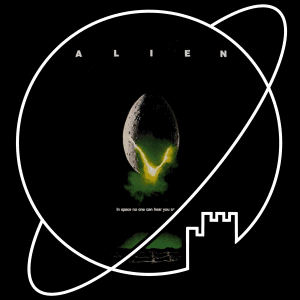- Movie directed by Ridley Scott
- Based on Do Androids Dream of Electric Sheep by Philip K. Dick
- Starring Harrison Ford, Rutger Hauer, Sean Young, and Edward James Olmos
- Released 25 June 1982
- Runtime: 117 minutes
- Followed by Blade Runner 2049

Blade Runner is undeniably one of the most influential films in sci-fi. Arguably, it is one of the two pieces of media (alongside Neuromancer) that launched cyberpunk as a genre. It is praised into high heaven by Reddit nerds and successful directors alike.
That begs the question: is it any good?
I would argue that it is, but if you disagree, I can’t really fault you.
Blade Runner is a surprisingly slow and surprisingly weird movie to have gained such prominence. For a movie supposedly about a bounty hunter tracking down his targets, it defies expectations by focusing on visuals and conversations basically all the way until the last sequence between Deckard and his final prey. That final action scene is a series of quick bursts of action interspersed with dialogue and tension – and the rare action sequences we do get before that are more confusing and crowded than exciting.
‘Confusing and crowded’ is actually also a good way to describe Blade Runner’s visual style. The screen is constantly filled with clutter, be it on the crowded streets or in Deckard’s apartment. In many of those scenes, I would find myself trying to figure out where to look, constantly a little distracted from the scene’s focus by all the other things going on in the background – if Scott doesn’t explicitly place those ‘things in the background’ center shot.
But that slowness and weirdness is likely also why Blade Runner still hits home after more than 40 years. It was never intended as flashy and clean, and so it didn’t age half as poorly as a more conventional version of the story might have.
And so Blade Runner takes the time to develop Deckard’s relationship with Rachael and to showcase Sebastian’s dusty apartment full of mechanical marionets. And in doing so, it raises interesting questions: How does one distinguish between a human and a machine? What essential quality separates them?
Those are questions that are not dissimilar to those Dick asked in Do Androids Dream of Electric Sheep, though in Dick’s version of the story it is never in doubt that empathy is that quality. Blade Runner is an adaptation that takes some liberty, but I don’t mind the ambiguity Scott introduced. A movie has less space to delve into diverse themes than a novel. Scott chose to focus on one of them, and to leave the viewer more space to come to their own conclusions.
So I like Blade Runner, but I do think it might put some people off. Still, it is such a classic – why not give it a shot?
















